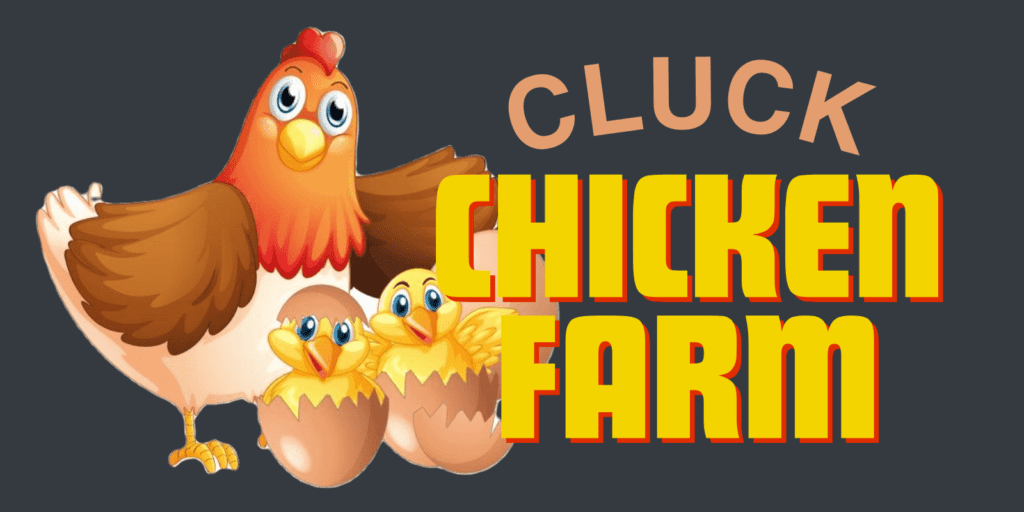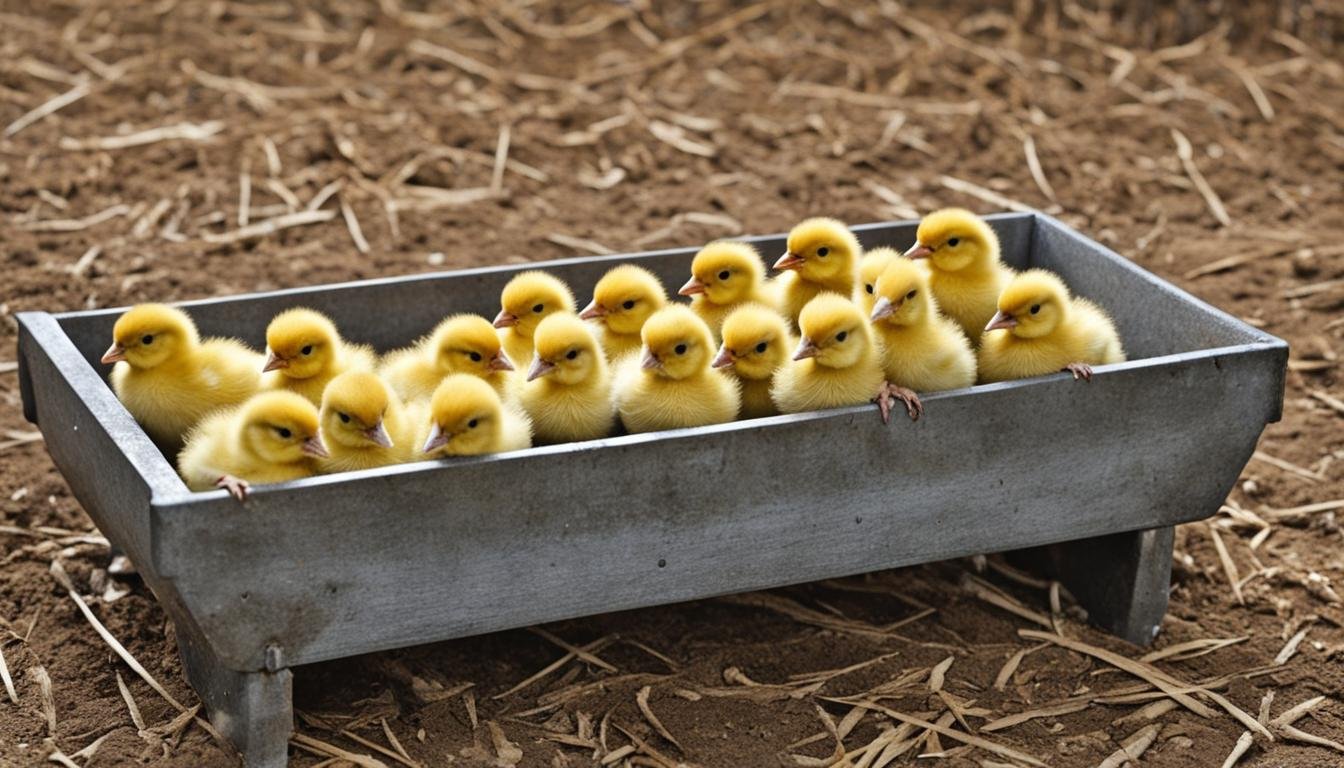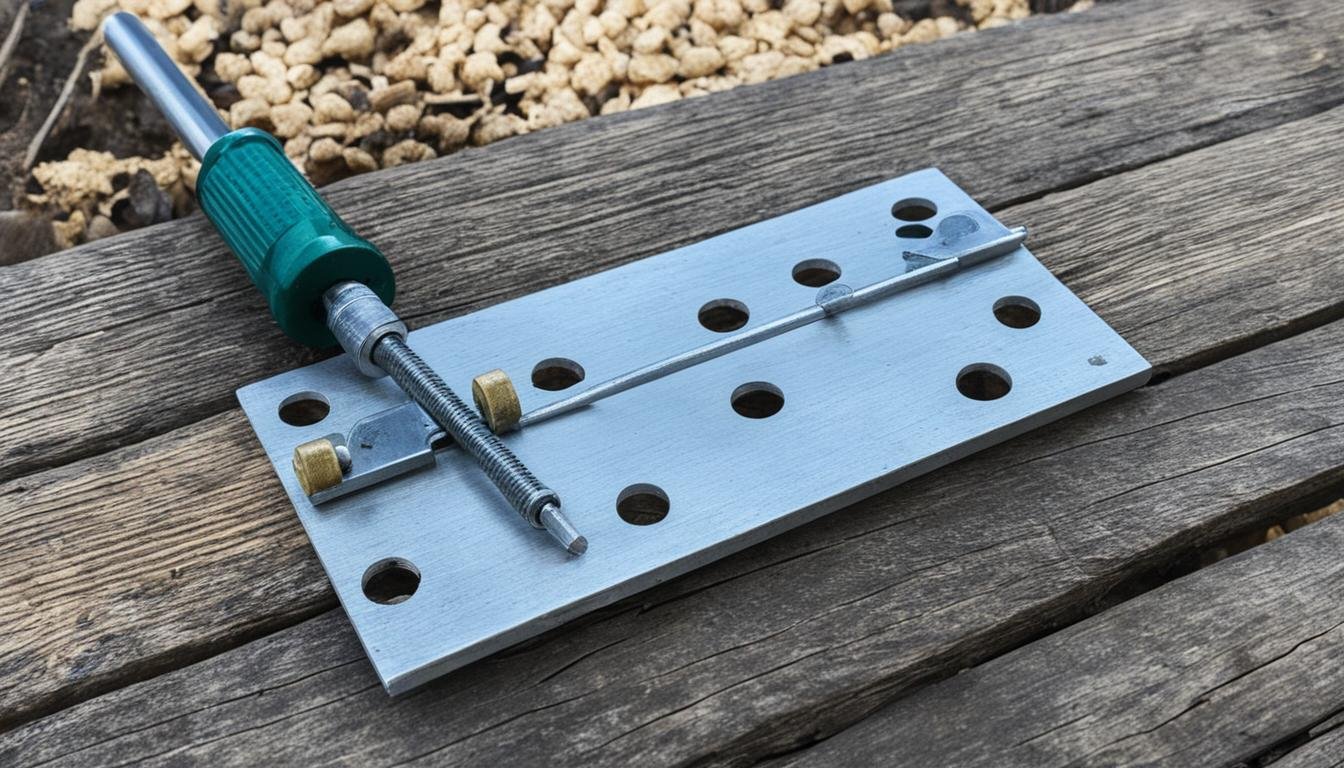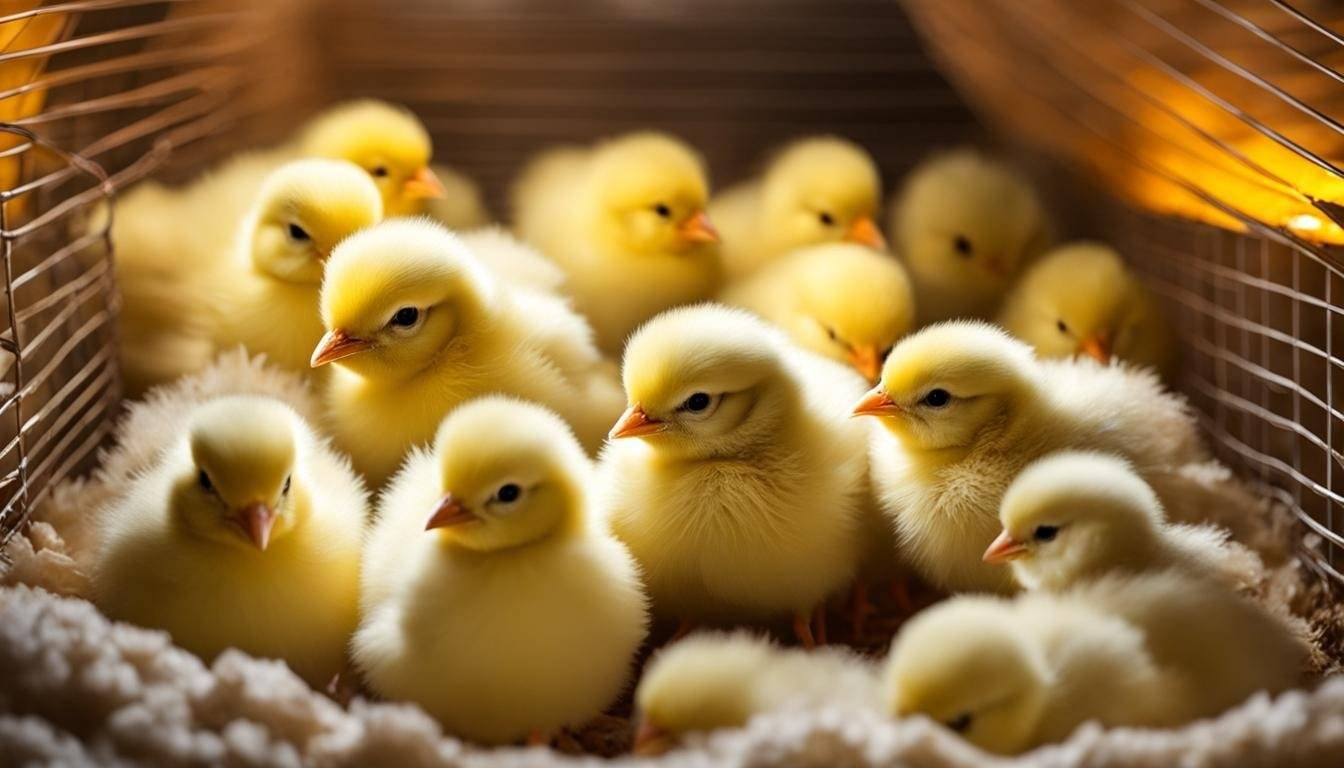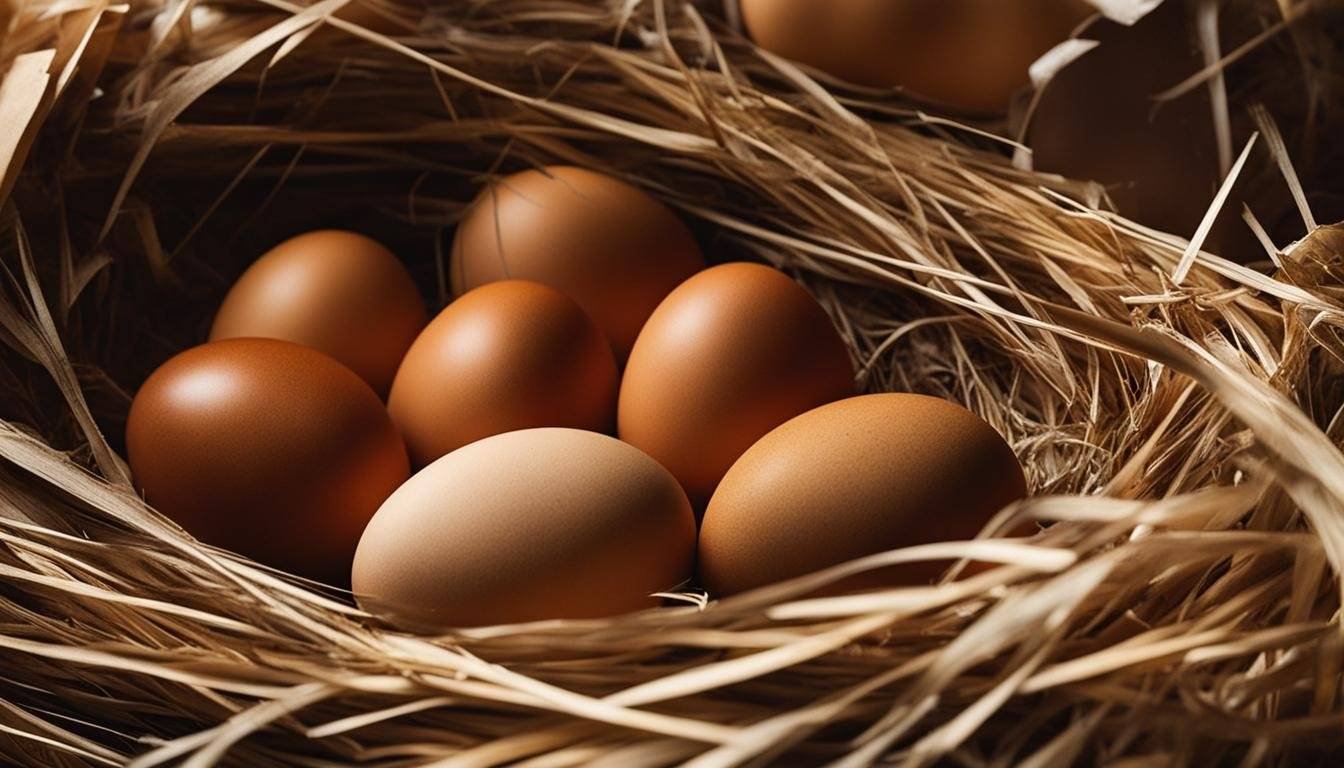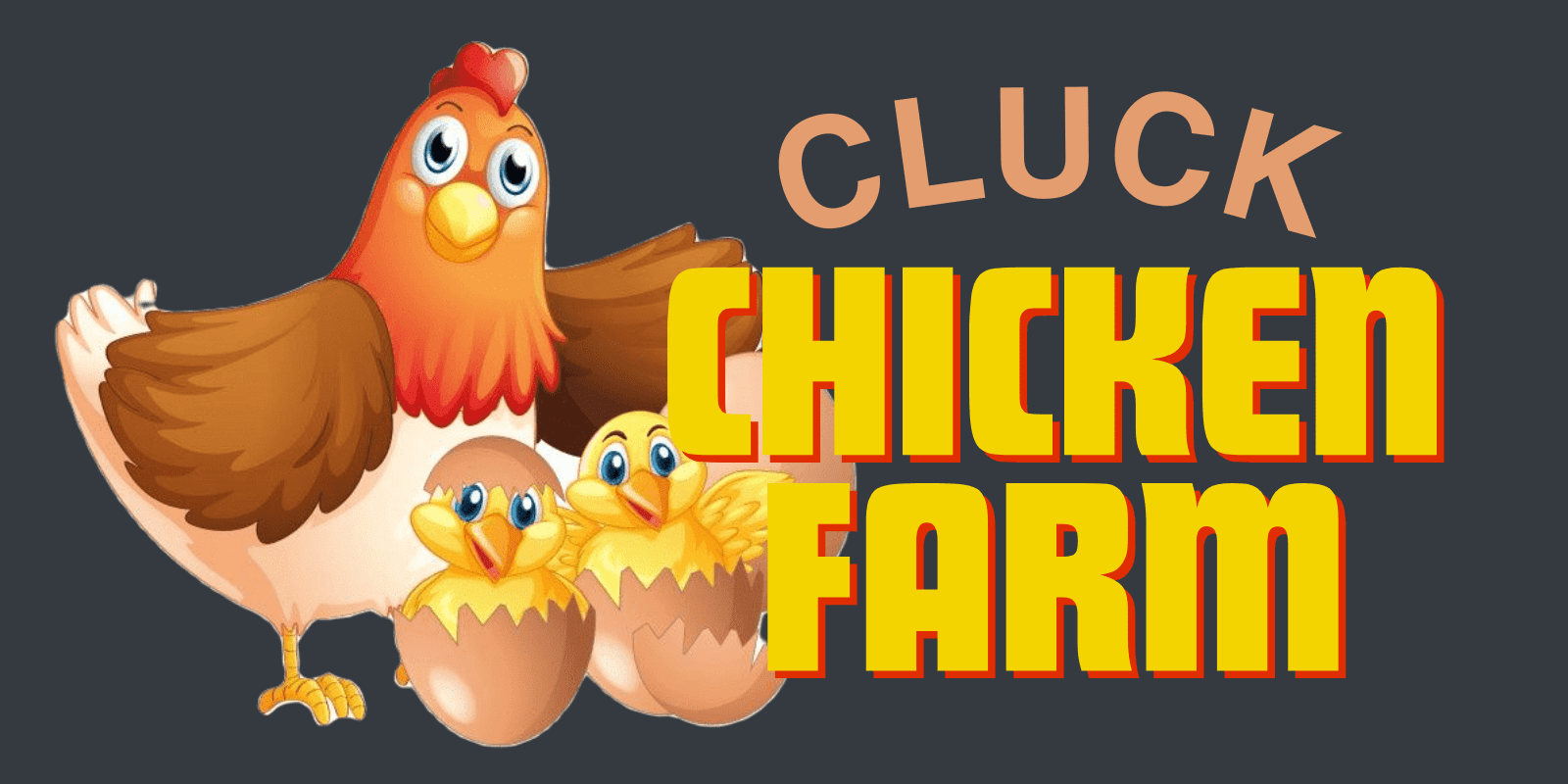Welcome to our informative guide on the optimal time for chick starter feed duration. If you’re a poultry enthusiast or a backyard chicken keeper, you may be wondering how long you should be feeding your baby chicks with starter feed. In this article, we will discuss the importance of providing age-appropriate poultry feed and outline the nutrients and feeding guidelines for chickens at different stages of development.
Feeding chicks with the right feed is crucial for their growth, health, and overall well-being. Let’s discover how long you should feed chick starter, the ideal chick starter feed duration, and why it matters. Understanding these aspects will help you give the best start to your adorable baby chicks and ensure their nutritional needs are met at each stage of development.
The Importance of Age-Appropriate Poultry Feed
Providing age-appropriate poultry feed is crucial for the growth and development of chickens. It plays a vital role in meeting their nutritional needs at each stage of their life cycle. Feeding chicks the right feed ensures they receive the necessary nutrients for optimal growth and health.
One of the key aspects of age-appropriate feeding is the use of starter feed for baby chicks. This feed is specifically formulated to meet the unique nutritional requirements of young chicks. It contains complete proteins, essential amino acids, vitamins, and minerals that support their bone health and immunity. Starter feed helps chicks develop a strong foundation for their future growth.
As chicks grow older, they transition to grower feed, which is designed to support healthy development. The protein content and calcium levels in grower feed are slightly lower compared to starter feed. This balance ensures that chickens continue to receive the necessary nutrients without excessive protein intake, which could lead to growth abnormalities.
Once hens start laying eggs, it is important to provide them with layer feed. This specialized feed contains higher levels of calcium and protein to support egg production. The calcium is crucial for strong eggshells, and the additional protein aids in the production of high-quality eggs. Feeding hens a diet tailored to their specific needs during the laying period helps maximize egg production and overall flock health.
Feeding chickens age-appropriate poultry feed offers several benefits:
- Ensures proper growth and development
- Supports bone health and immunity
- Promotes healthy egg production
- Prevents nutritional imbalances
| Feed Type | Primary Nutrients | Benefits |
|---|---|---|
| Starter Feed | Complete proteins, amino acids, vitamins, minerals | Supports bone health and immunity in baby chicks |
| Grower Feed | Lower protein, balanced calcium levels | Promotes healthy development without excessive protein intake |
| Layer Feed | Higher calcium, protein | Supports egg production and strong eggshells in laying hens |
Feeding chicks the right feed at each stage of their growth is essential for their well-being and productivity. By providing age-appropriate poultry feed, you can ensure that your chickens receive the necessary nutrients for optimal growth, health, and egg production.
Nutrients and Feeding Guidelines for Chickens
Chickens require a balanced diet with essential nutrients to support their energy levels, growth, egg production, immune and digestive health, and overall well-being. It is crucial to provide chickens with the right combination of protein, calcium, vitamins, and minerals to meet their nutritional needs at different stages of development.
Protein: Protein is a key nutrient for chickens as it supports muscle development and plays a vital role in egg production. Chickens require a diet that provides adequate protein content to promote healthy growth and maximize egg production. Protein-rich feed sources such as soybean meal, fishmeal, and poultry meal are commonly used in chicken feeds.
Calcium: Calcium is essential for chickens to develop strong bones and lay eggs with sturdy shells. Lack of calcium can lead to weak bones and fragile eggs. Therefore, it is crucial to provide calcium-rich feed sources such as oyster shells, limestone, or calcium carbonate to ensure chickens receive sufficient calcium in their diet.
Omega-3s: Omega-3 fatty acids are beneficial for chickens as they can enhance the nutritional profile of eggs, making them more nutritious for consumers. Feeding chickens with omega-3-rich feed sources such as flaxseed or fish oil can increase the omega-3 content in eggs.
Prebiotics and Probiotics: Prebiotics and probiotics are additives that can promote healthy digestion and support the immune system of chickens. Prebiotics act as food for beneficial gut bacteria, while probiotics are live microorganisms that can help maintain a healthy gut flora. Including prebiotics and probiotics in chicken feed can improve digestive efficiency and strengthen the immune response.
When feeding chickens, it is advisable to follow feeding guidelines provided by reputable feed companies. These guidelines take into account the specific nutritional requirements of chickens at different ages and stages of development. By following these guidelines, chicken owners can ensure that their birds receive the correct amounts of essential nutrients, such as protein, calcium, omega-3s, and digestive support, to thrive and produce high-quality eggs.
| Nutrient | Function | Feed Sources |
|---|---|---|
| Protein | Supports muscle growth and egg production | Soybean meal, fishmeal, poultry meal |
| Calcium | Strengthens bones and eggshell formation | Oyster shells, limestone, calcium carbonate |
| Omega-3s | Enhances nutritional profile of eggs | Flaxseed, fish oil |
| Prebiotics and Probiotics | Promote healthy digestion and immune support | Prebiotic additives, probiotic supplements |
The 3-Step Guide to Feeding Chickens
Feeding chickens requires careful consideration of their specific nutritional needs at each stage of development. Follow this step-by-step guide to ensure your feathered friends receive the right feed for optimal health and productivity.
Step 1: Feeding Chicks with Chick Starter Crumble (Birth to 8 Weeks)
During the first eight weeks of their lives, baby chicks require a specialized feed known as chick starter crumble. This feed formulation is high in protein (around 20%) to support healthy growth and development. Additionally, it contains omega-3s, prebiotics, and probiotics that promote brain development and boost their immune system.
Step 2: Transition to Pullet Developer Crumble (8 Weeks until Laying)
Once your chickens reach eight weeks of age, it’s time to switch to pullet developer crumble. This feed formulation has a slightly lower protein content (around 16%) and provides essential vitamins and minerals necessary for healthy growth and proper laying. Pullet developer crumble helps prepare the pullets for the transition to laying hens.
Step 3: Poultry Layer Pellets, Crumble, or Mash (After Laying Commences)
When your chickens start laying eggs, it’s crucial to provide them with poultry layer pellets, crumble, or mash. These feeds have a balanced nutrition profile with approximately 18% protein, calcium, and omega-3s. The higher calcium content supports the production of strong eggshells, while the added protein ensures the hens have the necessary nutrients for healthy egg production.
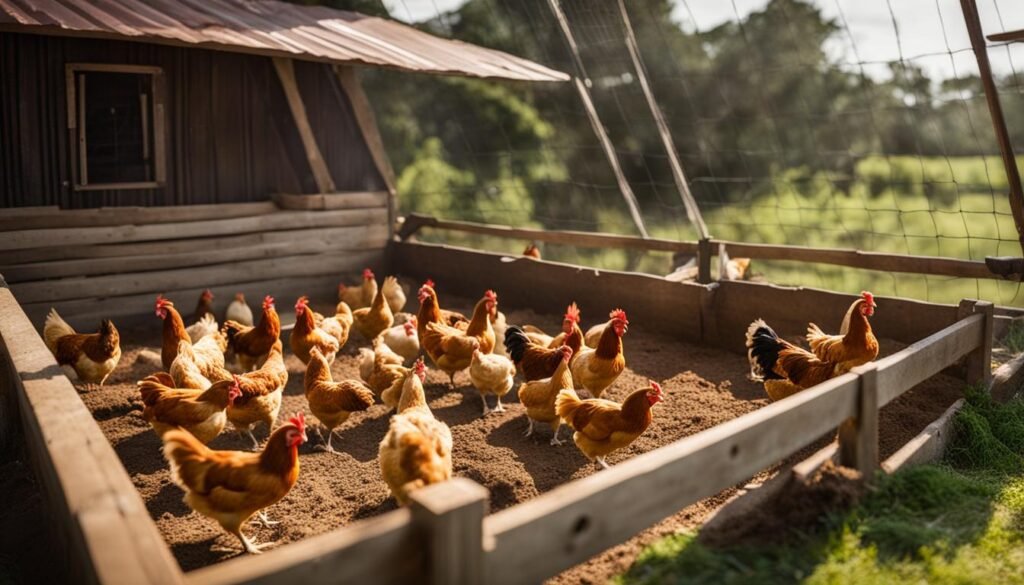
By following this 3-step guide, you can ensure that your chickens receive the optimal feed formulation for each stage of their development, from chicks to pullets and finally to laying hens. Remember to always choose high-quality feeds from reputable brands to provide your flock with the best nutrition possible.
| Chicken Stage | Feed Type | Nutrient Composition |
|---|---|---|
| Chicks (Birth to 8 weeks) | Chick Starter Crumble | Approximately 20% protein, omega-3s, prebiotics, and probiotics |
| Pullets (8 weeks until laying) | Pullet Developer Crumble | Approximately 16% protein, essential vitamins, and minerals |
| Hens (After laying commences) | Poultry Layer Pellets, Crumble, or Mash | Approximately 18% protein, calcium, and omega-3s |
Conclusion
Feeding chicks with the appropriate feed for the optimal duration is crucial for their healthy growth and development. Starting with starter feed for the first eight weeks provides the essential nutrients needed to support their skeletal and immune health. As they mature, transitioning to grower feed ensures they receive the necessary nutrients for healthy muscle development and overall development.
Once pullets start laying eggs, it is important to switch to age-appropriate layer feed. This feed is specially formulated with higher levels of calcium and protein to support egg production and maintain the overall health of the hens. Offering the right feed at each stage of development ensures that chickens receive the necessary nutrients to thrive and reach their full potential.
Following feeding guidelines provided by reputable feed companies and using high-quality feed brands is essential for the long-term health and productivity of your flock. Feeding chicks with the proper feed duration and providing age-appropriate nutrition is key to supporting their growth, immune function, and egg production. By prioritizing the nutritional needs of your chickens, you can ensure their healthy development and ultimately enjoy the benefits of strong, healthy, and productive poultry.
